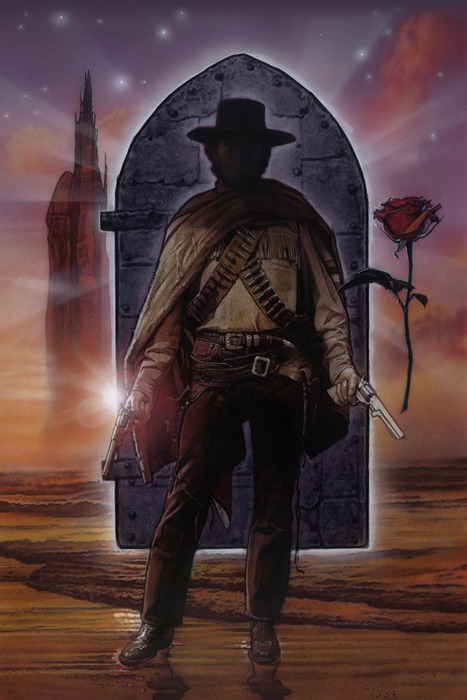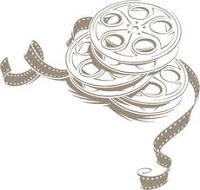So what does it mean to label a film as "good" or bad"? Is there a certain criteria that has to be met? Is that criteria universal?
Let's be clear, when engaged in conversation with friends and associates regarding a film, inevitably someone says that, "_______ was a good film", or "______ was a bad film." But that isn't a true or honest critique. What they're really saying is that they either liked or disliked a film. So how do we properly apply the terms of good and bad to a film, regardless of personal preference? We start by defining the terms good and bad. Like anything else, "good" is a term applied to something that does what it is expected, or intended, to do. "Bad" is when something fails to do what is expected or intended. For example, a meal may be considered good, if it is well balanced, provides essential vitamins, is nutritional, and does not contribute to high cholesterol or weight gain. A bad meal is one of little to no nutritional value. It raises cholesterol and fat in the body, leading to ongoing health problems. Yet good or bad have nothing to do with a meal's preference. We all enjoy a tripe-cheese pizza, but it is "bad" for us. Same with film.
For me, this begins and ends with the narrative. Simply put, the narrative is story which the movie is trying to tell. Embedded in each narrative, and arguably just as important, if not more so than the story element, is the intention of the narrative. What is it trying to convey? The intentions of the narrative can be many things. A narrative may simply have entertainment value. These movies are generally not thought provoking, but allow the audiences to escape their world for a couple of hours and simply enjoy the moment. Some narratives look to elicit an emotional response. Some people may say of a film, "I had to see this movie, I just needed a good cry." Narratives that resonate with deep emotional content connect with audiences in a more profound way than a simple "popcorn flick", which only entertains. Other narratives look to challenge the audience's thought process. Films like these look to raise awareness of cultural or social issues, challenge their moral and philosophical notions, or expand their aesthetic awareness. A film's narrative incorporates one, and often times more, of these intentions.
Of course, there is a virtual cornucopia of elements that go into a film that if not executed properly, can detract from the narrative so much, the narrative gets lost, and thus becomes a bad film. Chief among these elements are:
Direction: Like a coach in a football game, the responsibility lies on the shoulders of the director. It is his job to put the pieces together and complete the picture. This position has often proved that it isn't just the story that's important, but how it's told. That alone doesn't make a film good or bad, but would radically alter how the narrative is delivered. Consider what
Star Wars would have been if originally directed by Quintin Tarantino. What if Jerry Bruckheimer had directed
Schindler's List? Good or bad, these narratives would have been told completely different than the version we're used to. So matching a screenplay with the right director is important. But once the director is chosen, his techniques and sensibilities are paramount in how the narrative comes across. Dialogue, lighting, sound, camera angles, pacing, and choice of soundtrack are but a few of the many seasonings these chefs use in their kitchen.
Acting: Since most films involve people (even animated films require voice acting), it is the job of the actors to make their characters real, engaging, relatable and believable. The lead roles are usually what drives a film, but even for films where characters are not essential to the narrative, they still play a vital role in the films momentum. Like selecting the right director, casting is important. Times have shown that even bankable actors have been the wrong choice, and sometimes casting an unknown have propelled the film to unexpected heights.
Superman: The Movie is a prime example.
Continuity. How many times have we noticed a scene where a glass of water mysteriously changes position several times, or the volume of water goes from full, to 1/2 empty, back to full again. These are called continuity errors, and plague every film to some degree. This is the result of multiple shots, multiple takes during a scene. But that's not the continuity I speak of. What I refer to is the continuity that a film establishes for itself, than violates it. This happens a great deal in sequels.
Christmas Vacation, for example, for the sake of story, alters Rusty and Audrey's respective ages. Rusty was always the older sibling except for this installment.
Spider-Man 3 sees Peter Parker blindsided by the New Goblin, yet it was established in the first film that Spider-Man has "Spider-Sense", an almost precognitive ability that keeps him from being harmed from unseen dangers.
Sight, Sounds, Action. Costumes, sets, props, settings, visual, and audio effects also contribute greatly to propelling, or hamstringing, the films narrative. Sometimes effects can be so vivid, that they become the story.
Avatar's breathtaking scenery, costumes, and special effects took an often retold plot and breathed considerable new life into it. Other times, bad props and sets can detract from an otherwise compelling plot.
Ultimately a "criteria" in and of itself isn't used, by me anyway, to determine a films worth. Indeed, the concept of checking boxes off a virtual checklist of whether a film scores a pass or fail is really a disservice to the film, as each film should be held in its own regard. I'm not going to penalize
Police Academy for its unrealistic characters because its a comedy, and the farcical nature of the characters is whats central to the film. I'm not going to withhold appreciation of the film
Up because it's scientifically impossible for helium balloons to rip a house from its foundation. It's a children's fantasy film that caters to their imagination. What I look for is what the films narrative is and how it's crafted. Then, are there any detracting components that prevent the film from telling the audience what it needs to convey. Did the audience lose their escapism? Does the plot make sense? Did they leave with a sense of disappointment? Were the events believable in the context they were presented? Added up, did this all overshadow the purpose of the film? If so, than it was a bad film. If not, it was a good film.
Notice my use of the words "they", "Audience", and "their"? This is essential to keep in perspective when critiquing a film. If one critiques a film with "I didn't this", or "I find that", than pure objectivity is lost, and personal preference comes into play. Of course, I am one man and cannot speak for all. So I have to analyse my own reaction, and compare its objectivity to my personal preference. So I will often follow up a statement in conversation of a film being good or bad with "I liked it", or "I hated it", to give a clear distinction between a films performance and my preference. Regardless, the very nature of critiquing a film will always have objectivity tarnished by personal preference. The goal is to minimize personal preference as much as possible. What I find as a detractor may be forgivable by me, but to someone else it might be the deal-breaker. For example, I am a fan of the film
Armageddon, due to its strong cast and depth of characters. The narrative is a bunch of every day Joe's are tasked with saving the world from a comet large enough to destroy all life on the Earth. To me, the character element is more important than the premise, which is scientifically unsound, bordering on ridiculous. Yet, I can overlook these flaws when viewing the bigger picture. Other's find the premise too absurd to be taken seriously, and cannot. Again, they say it's a bad movie, but is it "bad", or just disliked? If the narrative was to tell the story of an Earth killing comet in the parameters of true aerospace physics, and a realistic natural progression of events,than yes, it is a bad movie cause the narrative is lost. This type of narrative clearly is meant to be thought provoking. But Armageddon's narrative was for pure entertainment value, and to be inspiring in its characters and theme. It was, and therefor a good film. Perhaps not a film everyone will like, but certainly not a bad film.
I hope this has offered insight into my reasoning and opinions on evaluating a film from a critical point of view. See you at the movies.
























